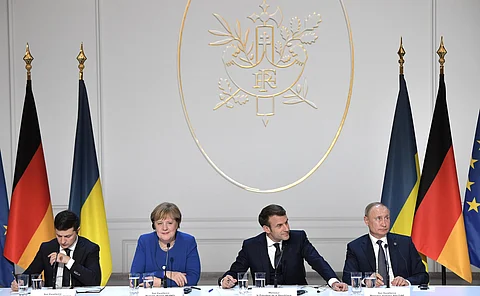

Ukrainian President Volodymyr Zelensky announced late Monday the formation of a “permanent expanded national negotiating group” tasked with conducting direct negotiations with Russia over the ongoing war in Ukraine.
In a post on his official Telegram channel, Zelensky stated: “We are also ready for a meeting at the leadership level to resolve key issues. Ukraine is not afraid of direct negotiations with Russia.”
While Zelensky reaffirmed that his proposal for a 30-day unconditional ceasefire remains on the table, the establishment of a standing negotiating team signals a clear shift—likely under U.S. pressure—toward engaging in sustained dialogue with Moscow.
The use of the term “permanent” indicates that both Zelensky and, likely, the United States foresee negotiations with Russia extending over an extended period—potentially weeks, months, or even into next year.
Zelensky’s willingness to engage in negotiations—alongside U.S. President Donald Trump’s support for what was originally a Russian proposal—represents a significant diplomatic win for Russian President Vladimir Putin. Putin, who succeeded in restarting direct talks between Kiev and Moscow last week for the first time since 2022, has also managed to shift Trump away from demanding a ceasefire, avoided new sanctions, and kept open the possibility of future normalization with the West.
This development marks a stark contrast to the policy of former President Joe Biden, whose administration backed Ukraine with unlimited military and financial support while refusing to press for direct negotiations.
In 2022, Russia and Ukraine came close to reaching a peace agreement in Istanbul that reportedly would not have required Ukraine to officially cede any territory and would have seen Ukraine regain control of the Kherson and Zaporizhzhia oblasts. However, those talks collapsed after then-U.K. Prime Minister Boris Johnson persuaded Zelensky to abandon the negotiations, promising increased Western military aid to help Ukraine defeat Russia on the battlefield.
Zelensky, who in October 2022 issued a decree forbidding Ukrainian officials from negotiating with Russia, effectively nullified that directive last Friday when he dispatched a delegation to meet with Russian counterparts in Istanbul—a move that may be viewed as another achievement for Putin.
No date or venue has yet been announced for the next round of talks between Russia and Ukraine.